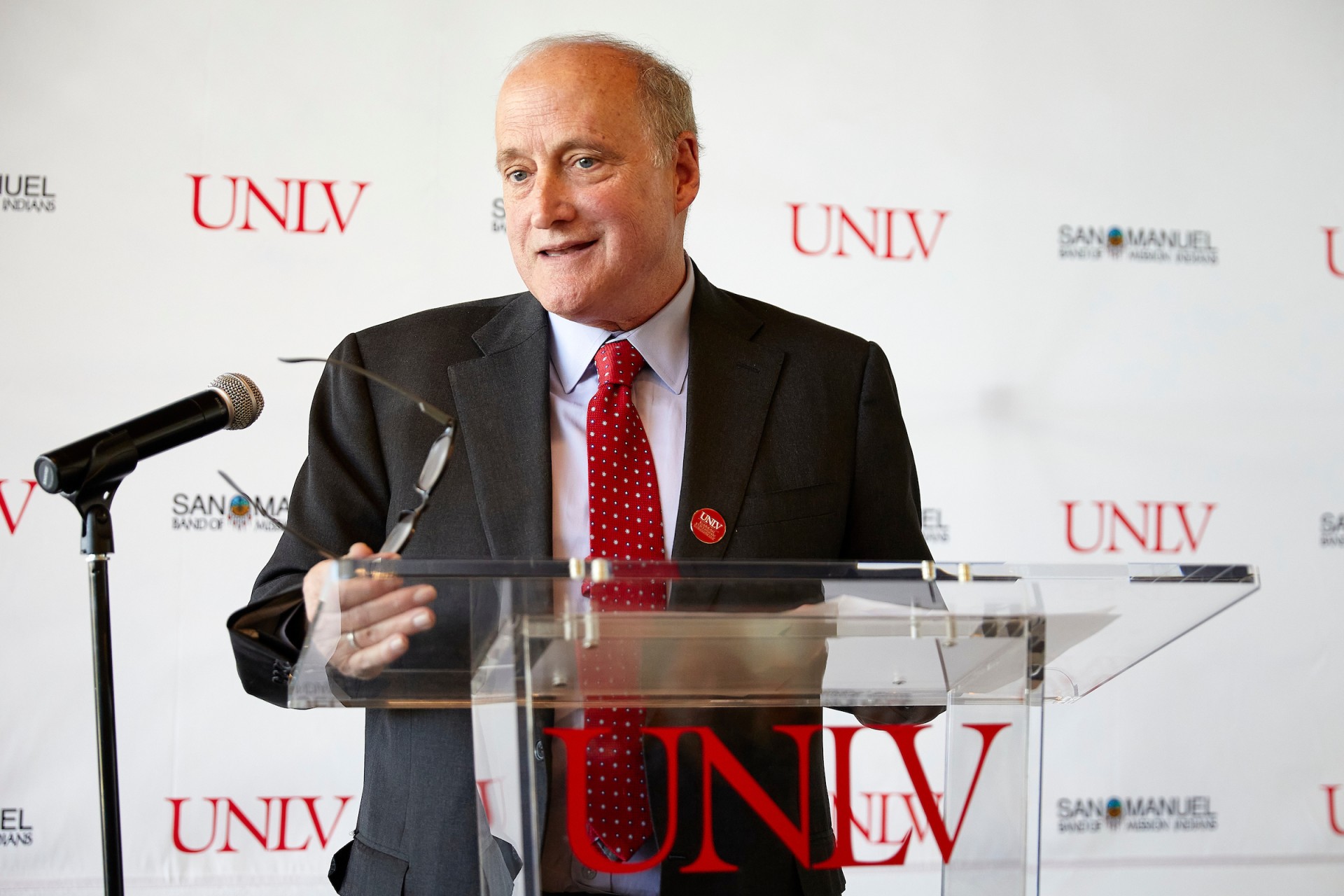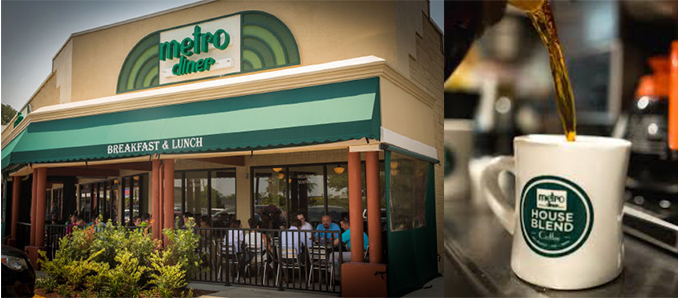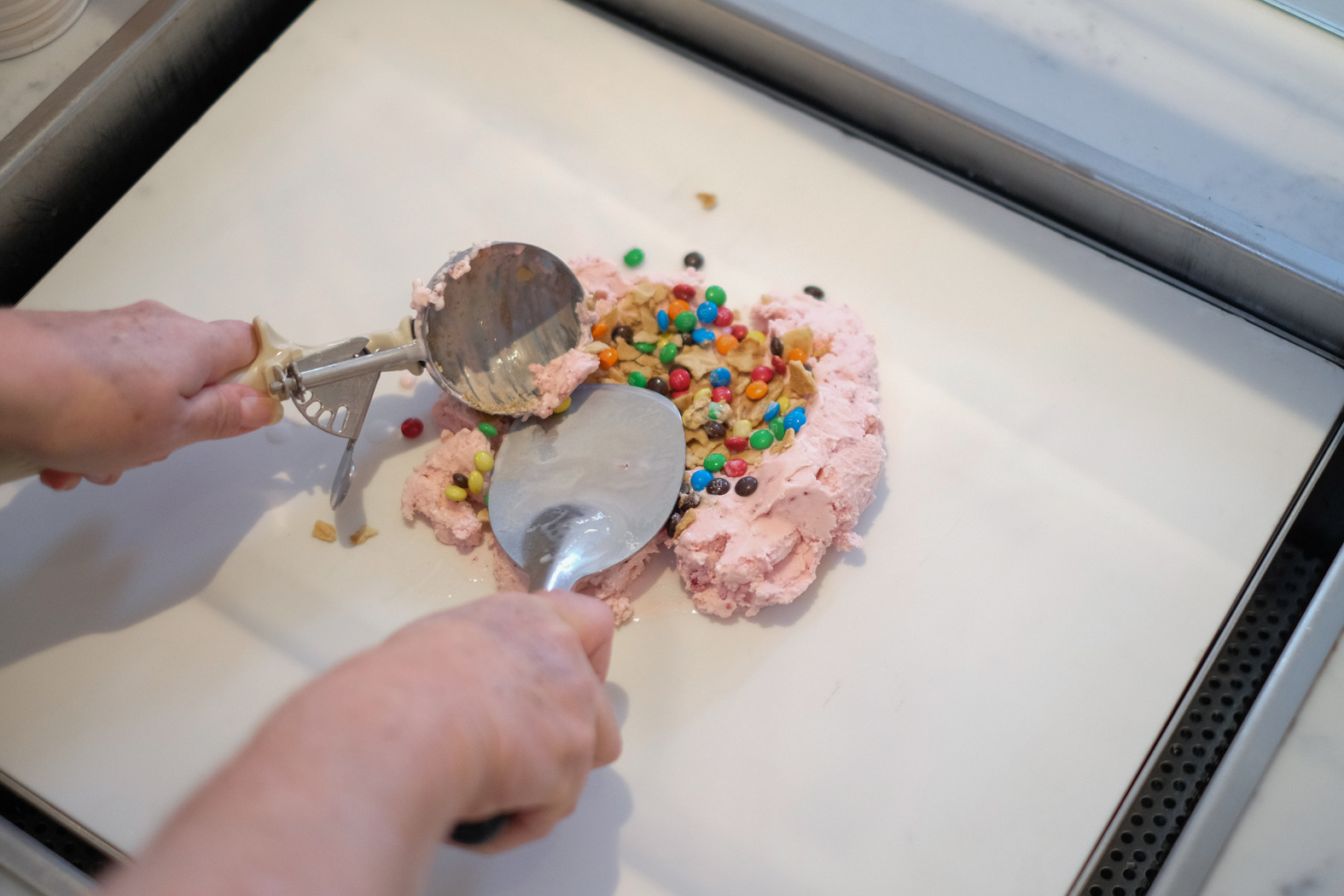A new aspect of hospitality happened when the Indian Gaming Regulatory Act of 1988 (IGRA) was passed. The federal law authorized Native American tribes to build and operate casinos on their sovereign land. Many of the tribes have created integrated resorts with entertainment, golf, food, and beverage to appeal to a wide range of visitors. This growth has created a need for trained and skilled management and staff. The William F. Harrah College of Hospitality at the University of Nevada, Las Vegas, understands this need and, thanks to a $6 million gift from the San Manuel Band of Mission Indians, is developing a comprehensive Tribal Education Initiative.
Tribal Education Initiative Featured in Food & Beverage Magazine
“Many of the Tribal Enterprises are still being run by non-Native Americans. The goal of this initiative is to educate tribal citizens on hospitality and gaming,” explains Stowe Shoemaker, dean of the William F. Harrah College of Hospitality.
“The issue is that many tribal citizens have not studied hospitality either in high school or college, so they don’t have the knowledge or skills necessary to run these very complex enterprises. “Many tribes have had to hire non-Native Americans or outside corporations such as Caesars Entertainment and Boyd Gaming to manage their properties. The goal of the San Manuel gift is to support the development of a strong hospitality and gaming curriculum at UNLV, both from the operations and the legal side, so Native Americans can create and operate these hospitality enterprises,” says Shoemaker.”
Developing this program means working closely with the 35 federally recognized tribal colleges and universities (TCUs) located in the United States. Many TCUs do not offer a curriculum based on hospitality or gaming, and one of the initiatives of the College of Hospitality is to provide a tailored curriculum for tribal students. In July, the college hosted the American Indian Higher Education Consortium (AIHEC) for its summer board meeting. Consortium members (TCU presidents) enjoyed campus tours, a special reception with UNLV dignitaries, and two and a half days of meetings. The college followed up by meeting with tribal college administrators at AIHEC’s annual student affairs conference at Salish Kootenai College in Montana and with human resources managers at the National Native American HR Association Annual Conference in San Antonio, Texas.
“We are asking many questions and doing a lot of listening to really understand the needs of TCU leaders and tribal members. Our goal is to understand what courses to offer and how best to deliver these courses [in person or online],” says the dean.
In addition to working with TCU, the college is also developing programs geared toward working adults. As hospitality and gaming companies try to become the employer of choice, they are offering educational benefits to their employees. “We want to be that college to provide educational benefits to Native American enterprises as well as other enterprises, whether these benefits are in the form of for-credit degree programs or non-credit certificate programs.”
An example of one such program, called “Train the Trainer, was created for Lucky Eagle Casino, located in the Seattle area. Lucky Eagle Casino sent its trainers to UNLV for a week to learn how to create professional manuals and other tools to train employees. UNLV representatives then spent a week at Lucky Eagle working one-to-one with their trainers on how to hire and train new staff members.
“Our hope is that we can build tailored certificate programs that will count as credit hours at a student’s home TCU or group of TCUs. We’re building an educational model that is sustainable, thanks to the long-term benefit of San Manuel’s gift, as well as flexible so that we can serve the diverse needs of tribal citizens.”
Hospitality and education have always been very important to Dean Shoemaker, which makes this gift from the San Manuel Band of Mission Indians so meaningful to him. Shoemaker started his career in hospitality working in kitchens as a teenager and spent many years in the hospitality industry before obtaining his master’s degree in hotel management from the University of Massachusetts. After earning his master’s degree, Shoemaker worked as a market research consultant helping many of the major restaurant and hotel chains develop new products. For example, one of his clients was a major fast-food chain, where he was involved in the creation and market launch of the soft chicken taco.
Read Also: Absolut Promotes Espresso Martini Lifestyle for Holidays – F & B
After five years working in market research, Shoemaker returned to school to earn a Ph.D. from the School of Hotel Administration at Cornell University in 1995. Dr. Shoemaker worked at UNLV from 1995 to 2004 and returned in 2012 after spending eight years at the University of Houston. He became the dean of the college of hospitality in 2013. The decision to move from consulting to academia was based on the desire to share knowledge, not use it for a competitive advantage. “I would learn about really cool stuff as a market research consultant, but I couldn’t share it with anyone,” says Shoemaker. “I always believed the knowledge and education should be shared.”
This includes reaching out to other communities.
“This gift from San Manuel Band has allowed our college to share our knowledge of hospitality and gaming and to develop and implement programs for tribal citizens that will impact them. Tribal casinos operate under different rules and regulations compared to commercial gaming. This gift allows us to ensure that all our courses offer two perspectives, one commercial and one tribal operation. We would not have been able to do it without this gift. Tribal citizens think in terms of generations, so the $5 million put into the endowment will pay off approximately $150,000 annually, which means the gift will last for generations. We will always have funds to support this program.”
For more info, visit unlv.edu/hospitality.
In addition to the $6 million donated to the Hospitality College, the San Manuel Band of Mission Indians gave $3 million to the William S. Boyd School of Law UNLV. The $9 million donation represents the largest philanthropic gift the California-based tribe has provided to an out-of-state education or healthcare institution.







